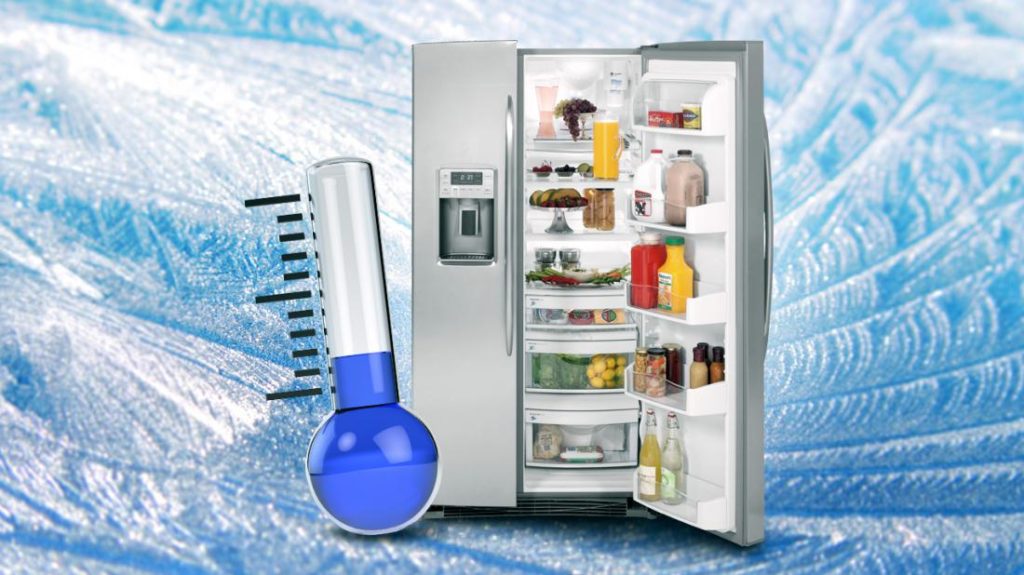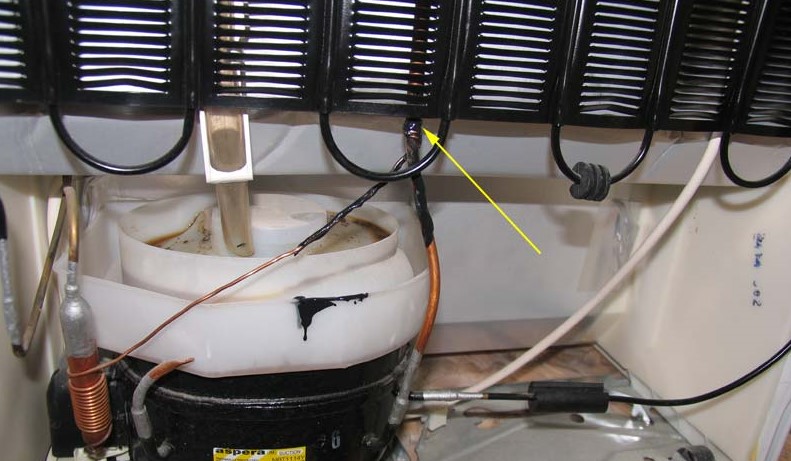Ice-turning food, layers of ice and snow on the walls of both chambers, frost even in the freshness zone, where the temperature should not drop below 2 degrees - all these symptoms indicate that the refrigerator is freezing too much. The reason for this phenomenon does not necessarily lie in the breakdown of the unit. Sometimes the problem arises due to the fact that its owner fears for the safety of products in hot weather and twists the temperature regulator to the maximum. In such a situation, the compressor starts to wear out, as a result of which the refrigerator begins to freeze.
If this is the case, we can recommend changing the settings, setting the average value for the regulator, which will ensure reliable protection of food from summer heat. Otherwise, it will be necessary to carry out diagnostics to identify the reasons for the incorrect operation of the device.
There are a number of malfunctions due to which the refrigerator can freeze too much, freezing whole ice hummocks on the walls. Below we will go over all the possible options, as well as troubleshooting methods.
Problem with sensors and temperature control

To deal with this problem, you need minimal knowledge of how the refrigerator works. In each of its cells, special sensors are installed. They constantly monitor the air temperature and, when it rises or falls to a certain limit, they send a signal to turn on or off the compressor. If one of these sensors fails, temperature control stops, which leads to the following consequences:
- the compressor starts to work without stopping, which can cause its rapid failure;
- even at the correct temperature, the refrigerator freezes food;
- intensive load eventually leads to failure of the motor-compressor.
If you set the thermostat to the middle position, but the engine does not turn off for a long time, do not hope that the problem will go away on its own. Contact a service center to diagnose and replace the sensor to restore normal operation of the refrigerator.
See also:
- 7 best Bosch refrigerators according to customer reviews
- 8 Best Samsung Refrigerators According to Buyers
- 9 Best Inexpensive Refrigerators According to Buyers
- 10 best LG refrigerators according to customer reviews
Violation of the tightness of one of the chambers and the formation of condensation
The low temperature in the refrigerator chambers is maintained due to the complete tightness of the chambers. It, in turn, is provided by the presence of a rubber seal located on the door. With its natural wear or mechanical damage, warm air gradually begins to penetrate into the chamber.
To compensate for the lack of cold, the compressor begins to produce it much more actively, due to which ice layers appear and food is frozen.In addition, excess heat in the chamber creates condensation, significantly increasing the humidity level in the refrigerator. Replacing the seal and restoring tightness helps to solve both problems at once.
![]() See also - How to check the health of the refrigerator compressor
See also - How to check the health of the refrigerator compressor
Clogged capillary system

To maintain the temperature in the refrigerator, refrigerant is constantly circulated through special tubes. But from time to time, the capillary system becomes clogged, which makes normal circulation impossible. Due to the blockage that has arisen, freon cannot enter the individual channels, which leads to a sharp drop in temperature in one of the chambers.
How do I fix this problem? The only sensible solution is to clean the system, which will restore the circulation of the refrigerant and its even distribution throughout the system. In single-compressor units, it may also be necessary to repair the valve, which alternately directs the freon to the refrigerating chamber and then to the freezer and ensures their stable operation.
![]() See also - TOP 8 built-in refrigerators according to buyers' opinion
See also - TOP 8 built-in refrigerators according to buyers' opinion
Problems with defrosting refrigerators
Modern refrigerators with the "No Frost" system defrost automatically without the need to turn off the refrigerator from time to time to remove accumulated ice from it. This is due to the heating element, which generates enough heat for spontaneous defrosting. If the device suddenly fails, the refrigerator will not defrost, which will lead to freezing of food.
In addition, in devices with "No Frost" it is recommended to periodically clean the drainage hole designed to remove excess moisture. If it becomes clogged, the refrigerator begins to freeze too much, and an unpleasant odor may appear in the chambers.
See also:

